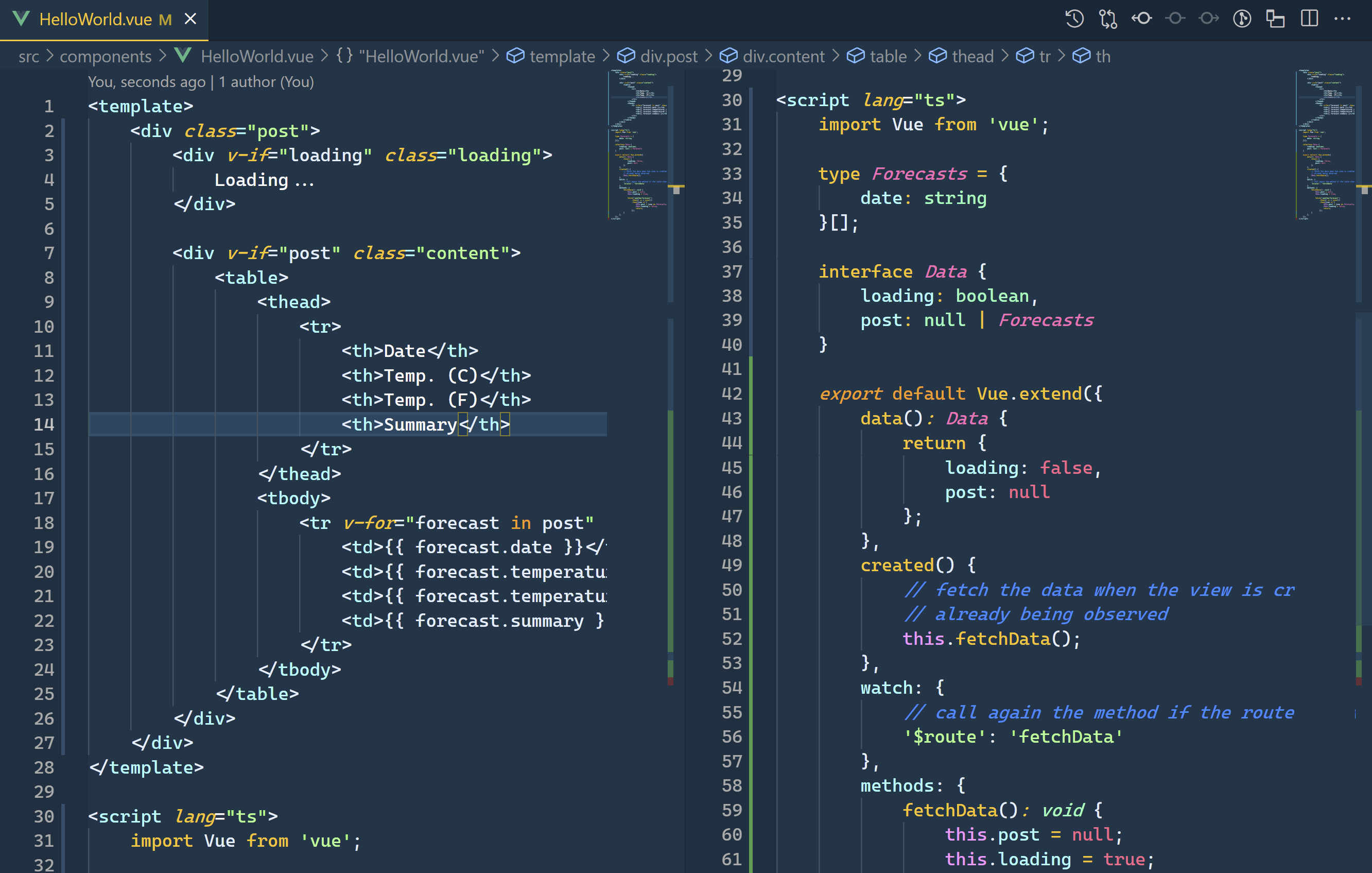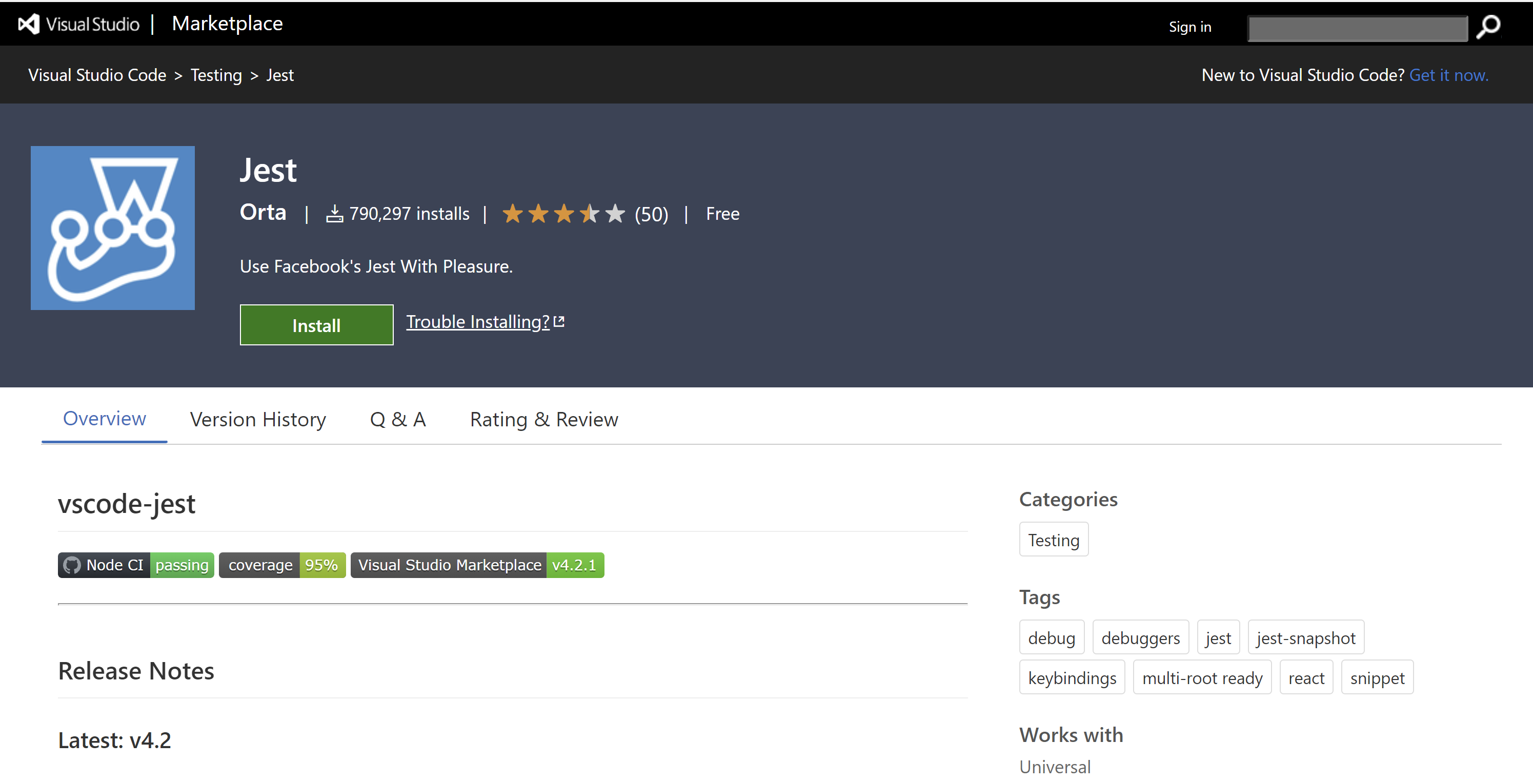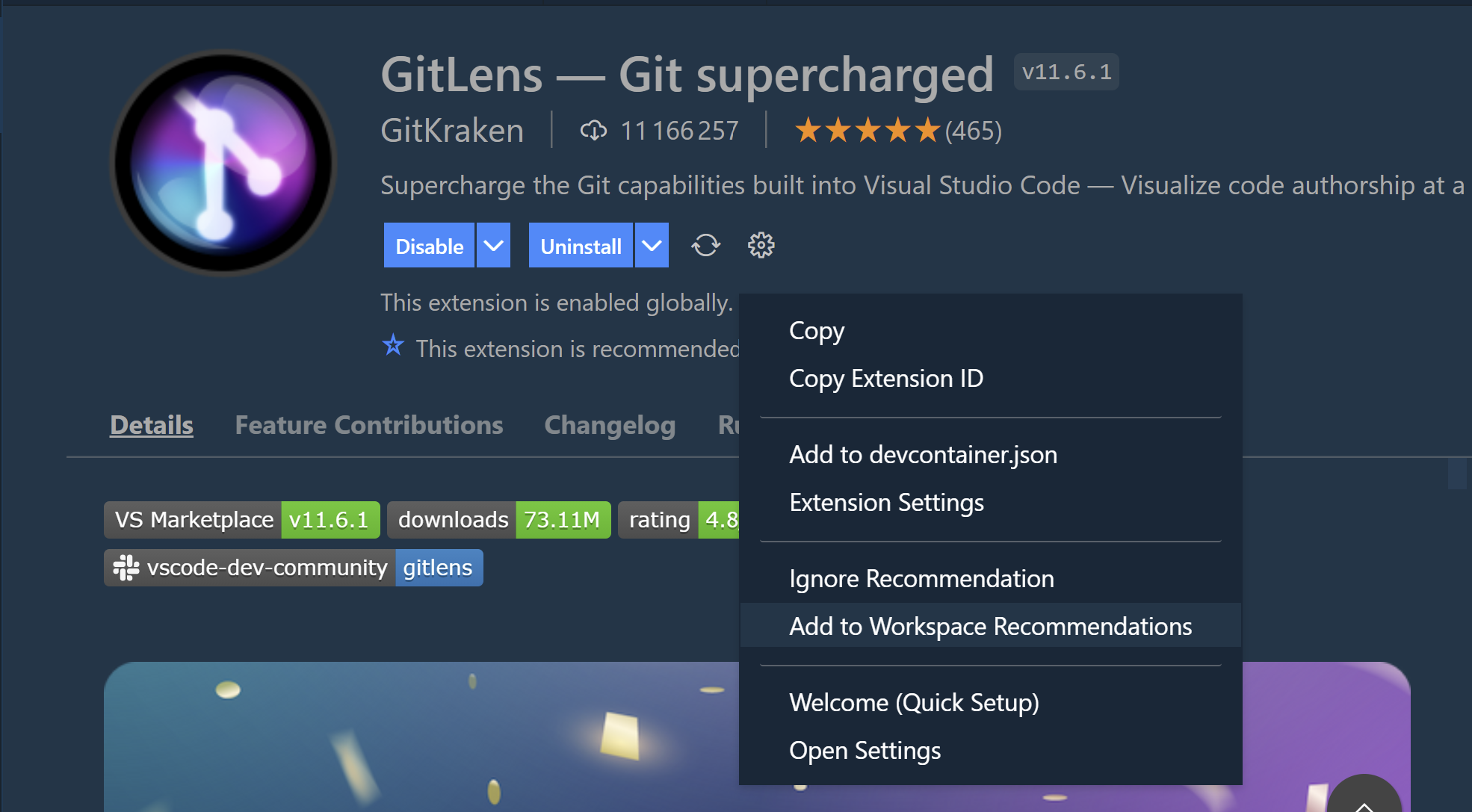
Week 41, 2021 - Tips I learned this week
This week I worked mainly in vs code to do some web development so tips will mostly be about vscode.
Work on different parts of your file with the new "split in group" command
When you are developing a component in Vue.js, it is convenient to be able to work at the same time on the HTML template and the TypeScript code which happen to be in the same file.

The latest release of vscode allows you to do that easily by introducing a new command "Split in Group" (the shortcut is Ctrl+K Ctrl+Shift+* on Windows)" that splits an editor into two sides.

vscode-jest, a must-have extension when using Jest
Many projects are using Jest as their testing framework for the frontend. But I was quite surprised to see that by default there is no test explorer in vscode to run or debug your Jest tests. I like the command line but for some things, like debugging a specific test, a UI is way more convenient.
So we have to install the vscode-jest extension to be able to discover our tests, run them and debug them.

If you are familiar with full-featured IDEs, you will like this extension that gives you a nice test explorer as well as other interesting features such as automatically running tests when code changes are made (similar to Live Unit Testing in Visual Studio )
That brings me to talking about sharing your vs code extensions with your colleagues.
Share to your colleagues the vscode extensions to use on your project
When you start working on a new project, you often have to find out which extensions your colleagues are using so that you install everything you need to work on the project. If your colleagues are nice, they would have written this kind of information in the README or the wiki of the project. But what if vscode could directly suggest to you which extensions to install when you open the project on your computer.

As you can see on the screenshot above that is exactly what vscode can do for you if someone has specified the recommended vscode extensions of the workspace in the extensions.json file of the .vscode folder.
Here is an example of such a file:
{
"recommendations": [
"orta.vscode-jest",
"sdras.vue-vscode-extensionpack"
]
}
This is just a list of vscode extensions identifiers. You can find the identifier of an extension on its details page in vscode. You will also find there a button to directly add the extension to your recommended list of extensions.

.vscode folder is in the gitignore of your repository, do not forget to add this line !.vscode/extensions.json to your gitignore file to be able to add your extensions.json file in your repository.And finally, let's talk a little bit about C#.
Help the C# compiler helps you with nullable reference types.
I am a big fan of enabling nullable on c# projects because I am convinced that it enforces you to write better code.
However, sometimes the compiler is not enough clever or does not have enough context to know that some code is fine and that it should not raise a warning. When something like that happens, we often solve this by using one of these 2 solutions:
- Use the null forgiving operator that should not be used in most cases
- Use an additional and unnecessary check just to please the compiler
It's because we often forget that we can add attributes on our code for null-state analysis as it is described in the documentation. These attributes will provide more information to the compiler which will be able to provide more accurate warnings.
I recently read a Pull Request where the developer was doing an additional check on the nullability of an out parameter coming from a TryGet method like in the example below.
string name = ".NET 6";
var myStore = new MyAwesomeStore();
myStore.Add("WelcomeMessage", " Hello ");
if (myStore.TryGet("WelcomeMessage", out var value) && value is not null)
{
var welcomeMessage = value.TrimStart();
string message = welcomeMessage + name;
}
public class MyAwesomeStore
{
private IDictionary<string, string> _store = new Dictionary<string, string>();
public void Add(string key, string value) => _store.Add(key, value);
public bool TryGet(string key, out string? value) => _store.TryGetValue(key, out value);
}
But if we annotate correctly the TryGet method we don't need this check:
public bool TryGet(string key, [NotNullWhen(returnValue: true)] out string? value) => _store.TryGetValue(key, out value);
if (myStore.TryGet("WelcomeMessage", out var value))
{
And that's it for this week, happy learning!